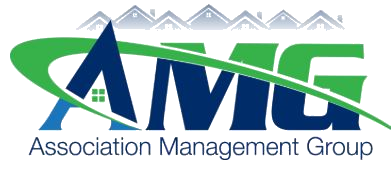The Corporate Transparency Act (CTA) was enacted into the National Defense Authorization Act for Fiscal Year 2021 as part of an effort to curb money laundering and other illicit activities by increasing transparency in the ownership of businesses. The CTA went into effect on January 1, 2024, and requires the United States Treasury Department’s Financial Crimes Enforcement Network (FinCEN) to establish and maintain a national registry of beneficial owners of entities that are deemed reporting companies.
The CTA potentially subjects attorneys and other professionals who advise businesses and assist with their formation to new obligations and penalties. However, the exact implications for these professionals are still unclear. The overarching concerns include advising on the CTA’s requirements and balancing disclosure requirements with responsibilities and ethical obligations.
Timeline for Compliance
On January 1, 2024, Reporting Companies were able to make their first Beneficial Owner Information (BOI) report on the FinCEN website. New entities formed on or after January 1, 2024, but before January 1, 2025, must file the report within 90 days of receiving confirmation of the entity’s creation. 31 CFR § 1010.380(a)(1)(i)(A). New entities formed on or after January 1, 2025, must file the report within 30 days of the entities’ creation. 31 CFR § 1010.380(a)(1)(i)(B).
Entities that existed before January 1, 2024, have a full year to comply with the CTA and must file the report by January 1, 2025. 31 CFR § 1010.380(a)(1)(iii). Further, companies that existed before January 1, 2024, do not need to include company applicant information on their initial report. 31 CFR § 1010.380(b)(2)(iv).
Once the initial report is made, companies must remain mindful of updating requirements. There is no recurring annual update requirement; the company must only update as needed. 31 U.S.C. § 5336(b)(1)(D). If there is any change to the beneficial ownership or any other information submitted in a report, the reporting company must, within 30 days of the change, submit an updated report to FinCEN. 31 CFR § 1010.380(a)(2)(i)
Who Needs to Comply?
Not every company needs to file a BOI report with FinCEN. The new requirements apply only to “Reporting Companies,” which is any corporation, limited liability company, limited partnership, or “other similar entity” created by filing a document with the Secretary of State or similar office under the law of a state or Indian tribe. 31 U.S.C. § 5336(a)(11)(A)(i).
Foreign reporting companies are also subject to the reporting requirements, including any corporation, LLC, or other entity formed under the law of a foreign country and registered in any state or tribal jurisdiction by filing a document with a secretary of state or any other similar office. 31 U.S.C. § 5336(a)(11)(A)(ii).
There are several exceptions to the reporting requirements, which generally fall within, but are not limited to, the following three categories: (1) entities that already carry significant disclosure obligations, such as banks, insurance companies, and registered investment advisors; (2) tax-exempt entities, such as charities, charitable trusts, and political organizations; and (3) large operating companies. 31 U.S.C. § 5336(a)(11)(B). A company is considered a large operating company if it meets three requirements: (1) operating presence at a physical office within the United States; (2) at least 20 full-time employees within the United States; (3) filed an income tax or information return demonstrating at least $5 million in gross receipts from U.S. sources. See § 5336(a)(11)(B)(xxi). Exempt entities should be made aware that if their exempt characteristics change, they may become Reporting Companies.
Contents of the Report
Reporting Companies need to identify each Beneficial Owner and each Company Applicant by that person’s full legal name, date of birth, current residential street address (or business street address for a Company Applicant that files in the ordinary course of business), a unique identifying number from an identification document (e.g., passport or driver’s license), and an image of the identification document. 31 U.S.C. § 5336(b)(2)(A); 31 CFR § 1010.380(b)(1)(ii). The report must also include the full legal name and any “doing business as” name of the reporting company, its complete current address, the company’s TIN, and the state, tribal, or foreign jurisdiction of the company’s formation. 31 CFR § 1010.380(b)(1)(i).
Who is a Beneficial Owner?
The CTA defines a Beneficial Owner as anyone who either (1) exercises “substantial control” over the Reporting Company or (2) directly or indirectly owns at least 25% of a Reporting Company. 31 U.S.C. § 5336(a)(3)(A).
“Substantial control” includes any individual acting as a senior officer, exercising authority over appointing or removing senior officers or the majority of the board of directors, exercising substantial influence over important decisions, or any other similar exercise of control. 31 CFR § 1010.280(d). The Regulations provide a non-exhaustive list of important decisions that indicate substantial control. 31 CFR § 1010.380(d)(1)(i)(C).
Ownership includes equity, stock, or similar instruments regardless of transferability or classification and capital or profit interests in an entity; any instrument that can be converted into shares or instruments, including warrants, rights, or futures; and options, privileges, or arrangements to buy or sell the items above are also considered ownership interest, except for those created and held by third parties without the Reporting Company’s knowledge or involvement. 31 CFR § 1010.380(d)(2)(i). Additional parameters for ownership can be found in 31 CFR § 1010.380(d)(2).
There are a few exceptions where individuals who meet the requirements may not be considered Beneficial Owners: (1) a minor child, if the information of the parent or guardian is reported instead; (2) an individual whose sole interest in the company derives from a future right of inheritance; (3) an individual who holds an interest merely on behalf of another person as a nominee, intermediary, custodian or agent (the individual acting as the principal is the Beneficial Owner); (4) employees of the Reporting Company (who are not senior officers); and (5) creditors whose interest derives solely from the right to be repaid a sum of money or similar right intended to secure the right of payment or to enhance the likelihood of repayment. 31 U.S.C. § 5336(a)(3)(B)
Who is a Company Applicant?
A Company Applicant is the person who files the document with the Secretary of State or similar office that creates the entity and/or the individual who directs or controls the filing of the document. 31 CFR § 1010.380(e). For example, this could be the paralegal who files the document and the attorney who directs them to do so. Both would be required to submit their personal information to FinCEN as part of the reporting company’s initial report. If an attorney or law firm chooses to have the reporting company itself make the disclosures to FinCEN, it will have to provide personal identifying information to the client. To avoid this, the attorney may submit the report to FinCEN, leaving the attorney responsible for ensuring the report is accurate. The only way for an attorney to entirely avoid these concerns is to refrain from filing formation documents.
Penalties
It is unlawful for any person to “willfully provide, or attempt to provide, false or fraudulent beneficial ownership information, including a false or fraudulent identifying photograph or document, to FinCEN. . .or willfully fail to report or complete or update beneficial ownership information to FinCEN.” 31 U.S.C. § 5336(h)(1). Anyone who violates this can be subject to a civil penalty of $500 per day for each day the violation continues, or a fine of not more than $10,000 or two years imprisonment, or both. 31 U.S.C. § 5336(h)(3)(A).
Further, it is unlawful for any person to knowingly disclose or use the beneficial ownership information obtained by the person through a report or disclosure submitted to FinCEN. 31 U.S.C. § 5336(h)(2). An unauthorized disclosure can lead to civil penalties of $500 per day for each day the violation continues, or a fine of not more than $250,000, or five years imprisonment or both. 31 U.S.C. § 5336(h)(3)(B). There is a safe harbor whereby an individual is not subject to civil or criminal penalty if the person has reason to believe that the report is inaccurate and voluntarily and promptly (90 days after the initial submission date) submits a corrected report. 31 U.S.C. § 5336(3)(C).
Practical Implications for Attorneys
The CTA raises new obligations for attorneys, whether they serve as Company Applicants or not. Some clients, such as small businesses with simple ownership structures, would likely pose very few concerns for the professionals who assist them. More complicated business structures, however, will require additional diligence.
The CTA effectively obligates professionals to fully understand the structure of the entities they serve and those entities’ beneficial owners. The Company Applicant disclosure ensures that the professionals who form the entity are tied to it in a federal database. It is unclear from the CTA how harshly the federal government will assess attorneys or other corporate service providers. On the more extreme end, filing false or incomplete information when there are obvious red flags as to an entity’s ownership could subject legal service providers to penalties.
Attorneys and firms retained outside of companies must decide whether they will continue to file entity formation documents on behalf of their clients and whether they will assist with compiling and submitting reports to FinCEN. Serving as a Company Applicant means that the attorney will always be associated with the entity in the federal database, even if the representation of the client has ended. In-house counsel will need to familiarize themselves with the requirements of the CTA, ensure their companies’ records of beneficial owners are accurate and current, and ensure there are data security measures in place to protect the personal information the CTA requires.
Further, if an attorney chooses to submit reports to FinCEN on behalf of a client, the attorney will be responsible for providing accurate information. Until policies and procedures are in place to meet these new requirements, some attorneys may refrain from serving as a Company Applicant, particularly for more complex entities.
For those attorneys who elect to step back from filing formation documents and/or submitting FinCEN reports, the CTA still raises additional obligations, particularly for those who advise businesses and assist with drafting operating agreements and similar governing documents. The following are some considerations, although more may become apparent:
Implementing a system to inform existing clients of their new reporting obligations;
Adding language to LLC agreements and other similar governance documents that obligates members to comply with reporting requirements;
Identifying Beneficial Owners in governing documents;
Revising firm engagement letters to clarify that clients will provide complete and accurate reporting information, especially if submitting reports to FinCEN;
Determining whether attorneys will continue to assist with filing formation documents, refrain entirely from doing so, or make the determination on a client-by-client basis;
If attorneys will not be assisting with FinCEN reports or filing formation documents, ensure that is made clear in each engagement letter; and
If attorneys want to serve as Company Applicants, develop a vetting process to ensure accurate information is provided and that clients are making any needed updates to FinCEN.
Lindsey Behnke is an attorney in Turner Padget's Columbia, South Carolina, office, where she is a member of the Business and Commercial Litigation team. She may be reached at lbehnke@turnerpadget.com. The preceding was prepared for informational purposes only and does not constitute legal advice. Please seek professional counsel before acting on this information.











































